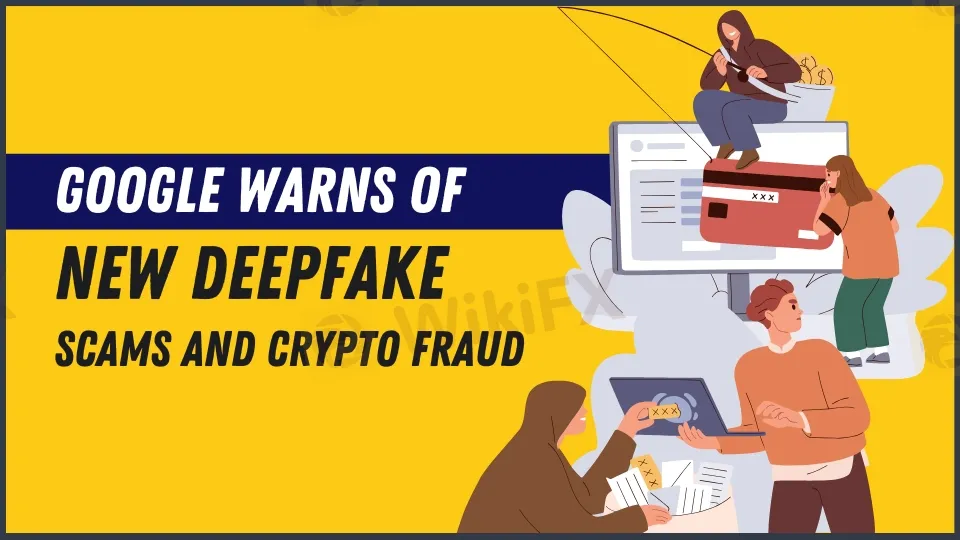Google Warns of New Deepfake Scams and Crypto Fraud
abstrak:Google exposes deepfake scams, crypto fraud, and app cloning trends. Learn how to spot these threats and safeguard your data with expert tips and advice.

Google has revealed a proactive campaign to combat the rising menace of online frauds, which have attained unparalleled levels of complexity and popularity. The internet giant's Trust & Safety teams will issue frequent warnings to educate consumers about developing fraud strategies and provide them with the tools they need to defend themselves.
Google launched the program in response to five disturbing fraud patterns it detected. Scammers are using powerful deepfake technology to generate convincing counterfeit material, and prominent figure impersonation schemes are at the forefront. These impersonations often pitch false high-yield investments, freebies, and malicious software, combining old fraud techniques with cutting-edge technology.
Google warns about cryptocurrency fraud as well. These frauds often offer excessively large profits while fraudulently associating with well-known businesses or people. “Be wary of investments that promise assured or high returns with little to no risk. Google warned: ”If it sounds too good to be true, it probably is.

Cloning apps and websites is another false practice. Scammers construct near-identical copies of legal platforms in order to deceive customers into supplying personal information or making unlawful transactions. To prevent becoming a victim, Google urges users to double-check URLs and landing sites.
Deceptive cloaking techniques have also raised concerns. Scammers hide fake material in order to avoid Google's detection algorithms while providing consumers with incorrect information. For extra protection, the organization suggests turning on Enhanced Protection in Chrome.
Furthermore, malevolent actors use important events like elections and natural catastrophes to create fake campaigns that take advantage of the increased public attention. Google advises users to stay careful at such periods and to double-check the legitimacy of internet claims.
CICC Warns Filipinos of Rising Crypto Scams and Fraud Tactics
The Cybercrime Investigation and Coordinating Center (CICC) in the Philippines has observed an increase in cryptocurrency fraud. According to CICC Executive Director Alexander Ramos, the organization has received complaints from 14 victims who were duped into investing between $100 and $1,000 by overseas fraudsters. These frauds often instill a false feeling of urgency in victims, pressuring them to make snap judgments. The crooks vanish without a trace after transferring the money.Final ThoughtsThe proliferation of internet frauds necessitates a collaborative effort by technology firms, regulators, and consumers. While Google's endeavor is an important start in combatting these risks, public knowledge and vigilance remain the most effective defenses. Individuals may defend themselves against developing fraud methods by being aware and careful.

Broker ng WikiFX
Exchange Rate

